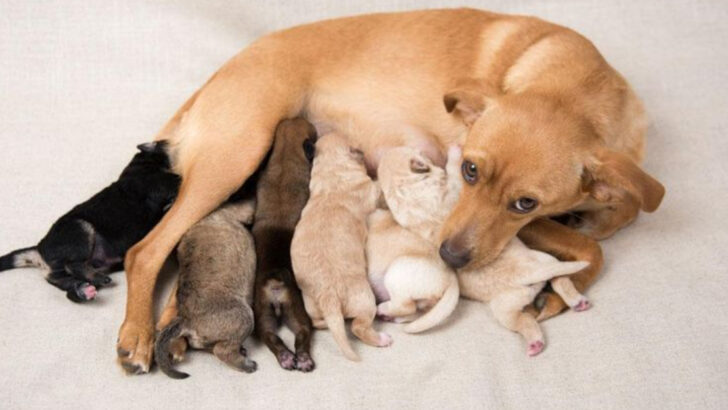Birth isn’t the end—it’s just the beginning.
Your dog just brought life into the world, and now her real challenge begins.
She might look calm, but her body is in overdrive. Hormones are flying. Her energy’s split between healing and caring for a pack of tiny, squeaky chaos-makers.
Things can go wrong—and fast.
Infections, exhaustion, trouble nursing—these aren’t rare flukes. They’re real risks.
Miss the signs, and you could lose more than sleep.
You don’t have to hover like a helicopter parent, but you do need to know what’s normal—and what’s a red flag.
Here are 10 warning signs after birth that should send you straight to the vet.
Because her job’s not done. And neither is yours.
Lethargy and Weakness
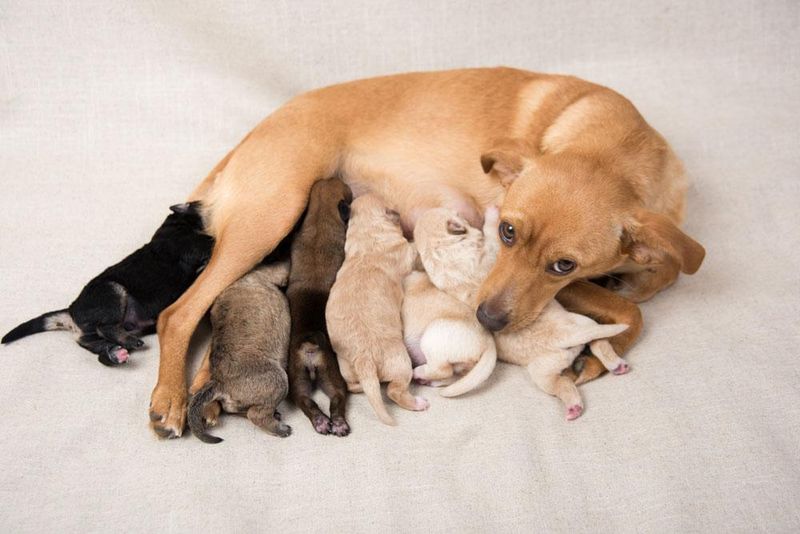
Is your dog unusually tired or lacking energy after giving birth? Lethargy can indicate underlying health issues, such as infections or complications from delivery.
A dog that is not engaging with her puppies or seems exhausted may need veterinary attention. This warning sign should not be ignored.
Ensure she has a quiet, comfortable place to rest and monitor her behavior closely. Consult your vet if her condition doesn’t improve, as timely intervention can prevent more severe health problems.
Foul Smelling Discharge
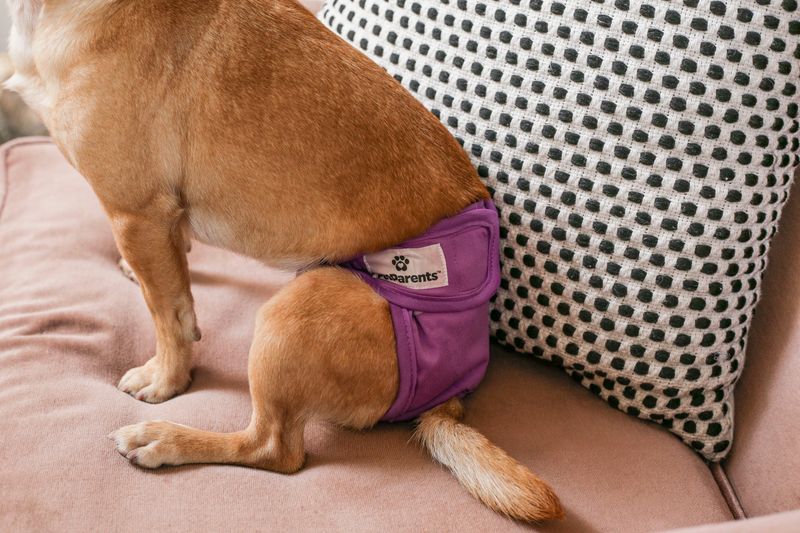
Unpleasant odor from vaginal discharge can signal an infection, which is a serious concern during postpartum care.
Check the color and consistency of the discharge; it should not be green or yellowish. A persistent foul smell may require medical intervention to prevent further health issues.
Seeking veterinary advice is critical, as infections can lead to more severe conditions if left untreated. Always maintain a clean environment for the mother and her puppies.
Lack of Appetite

Eating is essential for a dog recovering from childbirth as it aids in regaining strength. However, if she refuses food, this could be an alarming sign.
Watch her eating habits closely. A prolonged lack of appetite might suggest illness or stress.
Encourage her to eat by providing nutritious and appealing meals. Consult a veterinarian if her appetite doesn’t return, as proper nourishment is vital for her health and her puppies’.
Excessive Panting
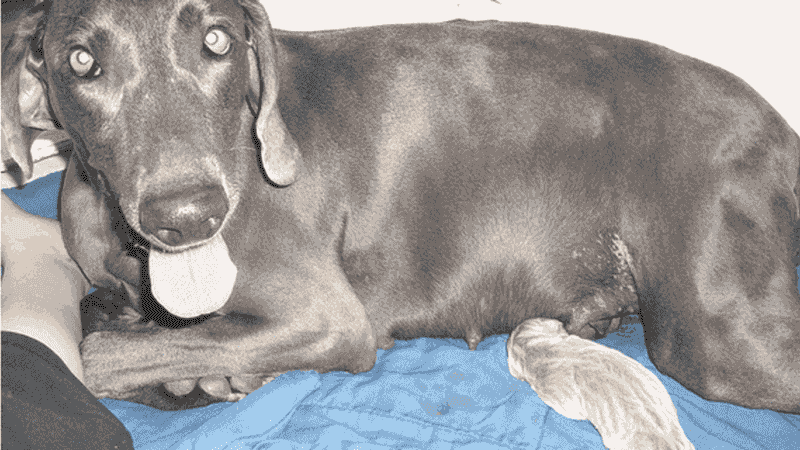
Panting is normal after childbirth, but excessive panting could be a warning sign. It may indicate pain, stress, or overheating.
Observe her breathing patterns and ensure she’s comfortable and not too warm. Keep her hydrated and in a cool place to help regulate her temperature.
If the panting continues or worsens, seek veterinary help. Addressing the root cause is essential for her well-being and recovery.
Aggression Towards Puppies
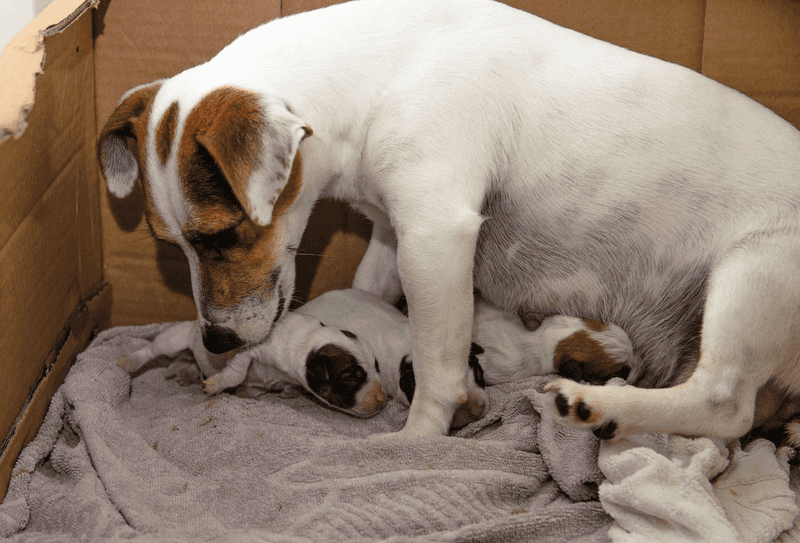
While maternal instincts usually ensure protective behavior, aggression towards puppies can be concerning.
This behavior might stem from pain, stress, or lack of experience. Watch her interactions closely and ensure she has time to rest alone.
Consult a veterinarian or a pet behaviorist if aggression persists. Resolving this issue is crucial for the safety of her puppies.
Swollen or Painful Abdomen

A swollen or painful abdomen postpartum can indicate retained placentas or infections.
Observe her closely for signs of discomfort and swelling. Ensure she’s resting comfortably and monitor her health signs.
Veterinary examination may be necessary to address potential complications. Rapid intervention is vital to prevent serious health issues.
Difficulty Nursing
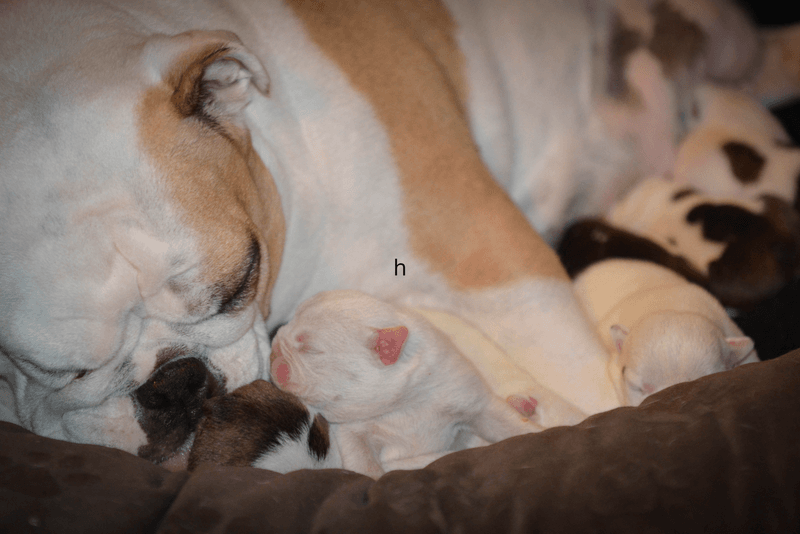
Nursing challenges can arise postpartum, affecting the puppies’ nutrition and growth. Watch for signs like unwillingness to nurse or puppies not gaining weight.
This could be due to mastitis or insufficient milk supply. Ensure the mother is comfortable and stress-free.
Consult a veterinarian to address nursing issues promptly to support the health of both the mother and her puppies.
Frequent Vomiting
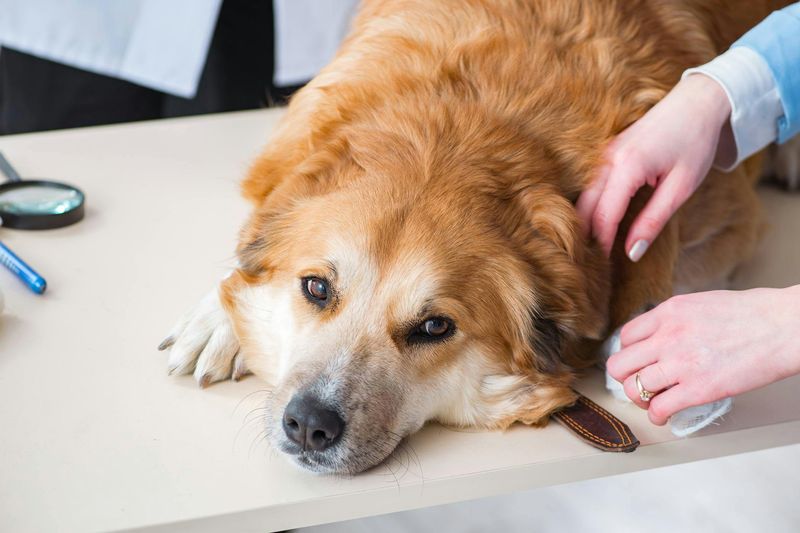
Vomiting can indicate dietary issues or stress postpartum.
Monitor her vomit consistency and frequency. It should not be excessive or continue for long periods.
Ensure a balanced diet and maintain hydration. Consult a vet if vomiting persists, as it may require medical intervention.
Reluctance to Move

Post-birth, a dog should gradually regain mobility. Reluctance to move might signal pain or health issues.
Encourage gentle movement to aid recovery, but monitor for signs of discomfort.
Seek veterinary advice if mobility doesn’t improve, as it may indicate underlying problems needing attention.
Puppies Ignored by Mother
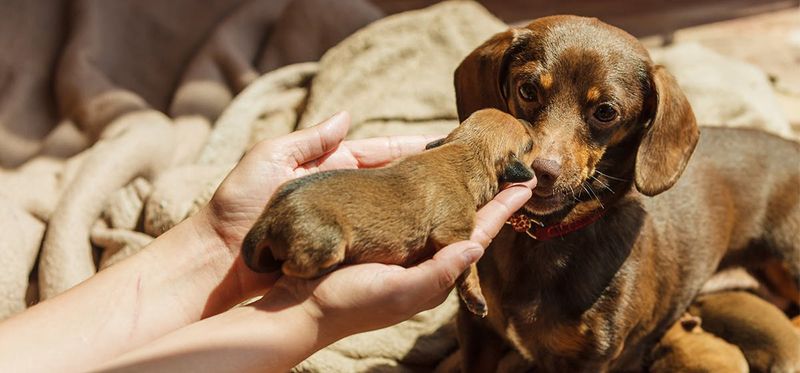
Instinctively, a mother dog should care for her puppies. Ignoring them can indicate stress or health issues.
Watch her interactions and ensure she has adequate space and support. This behavior might require veterinary consultation.
Address this promptly to ensure the well-being of both the mother and her puppies.

